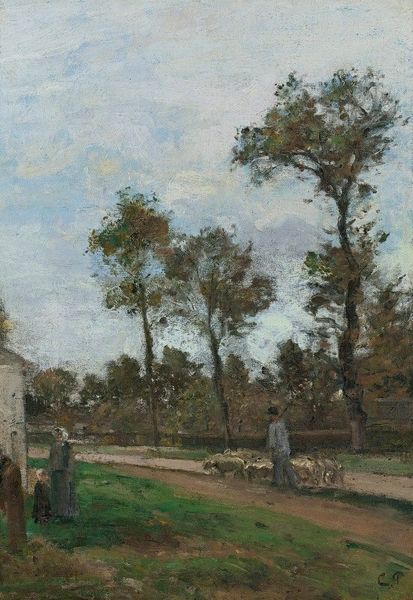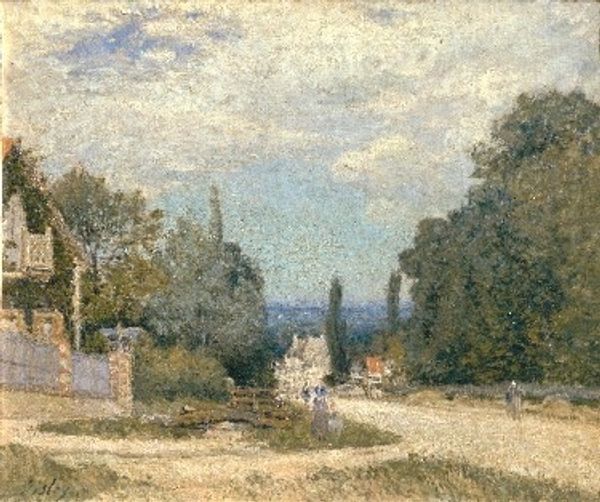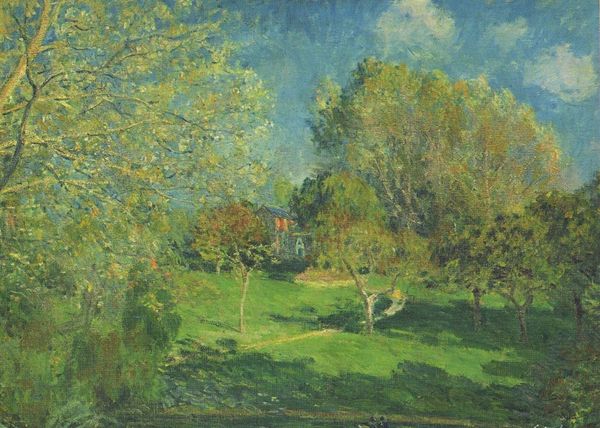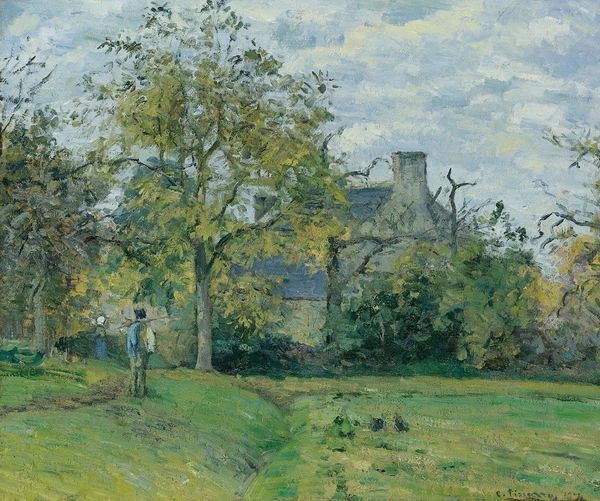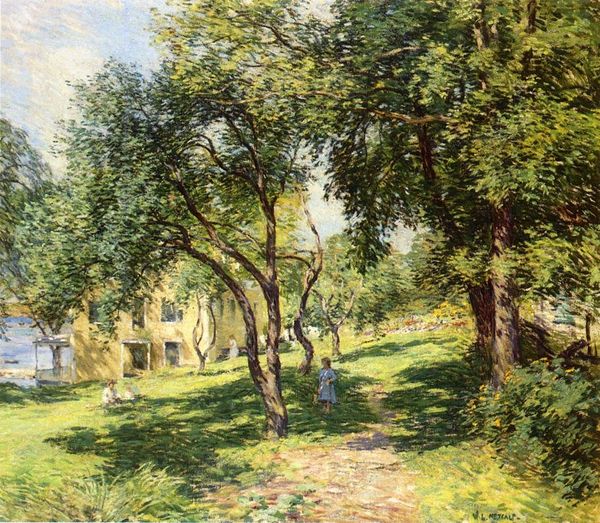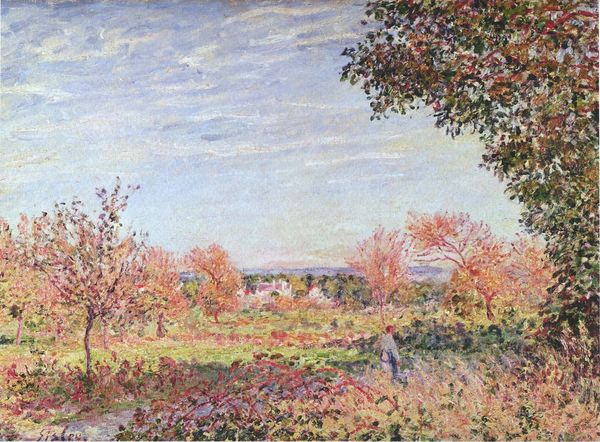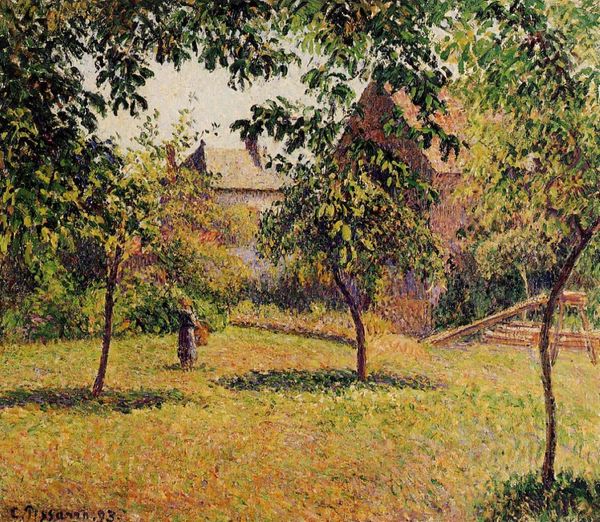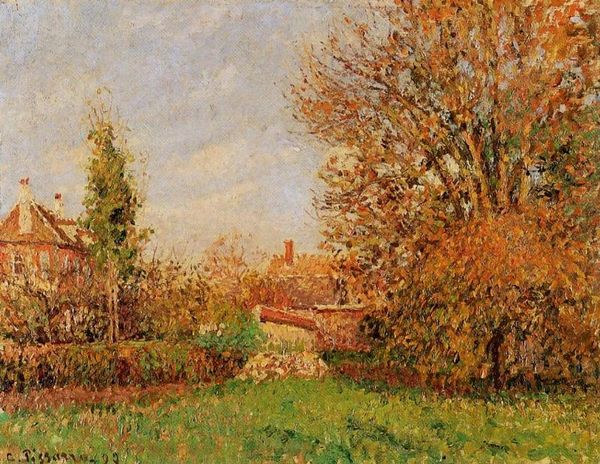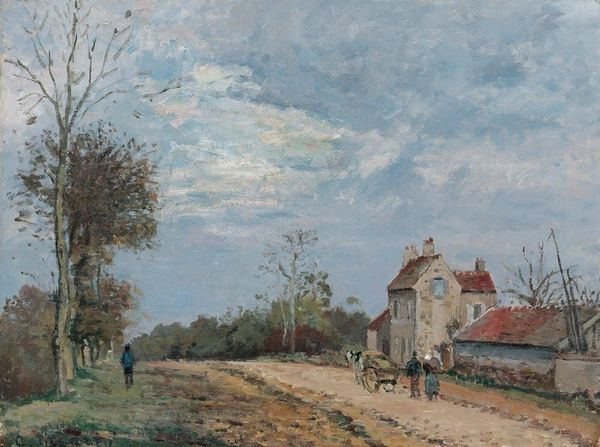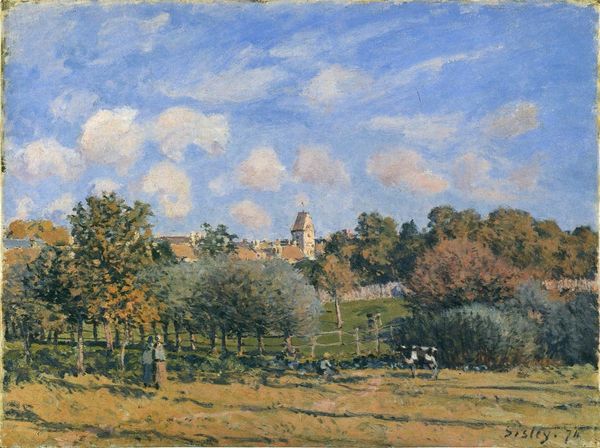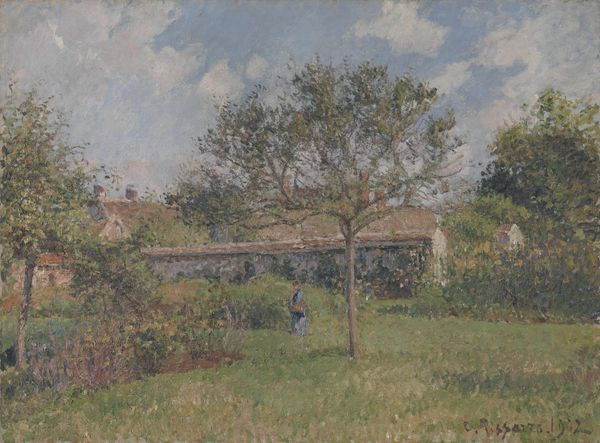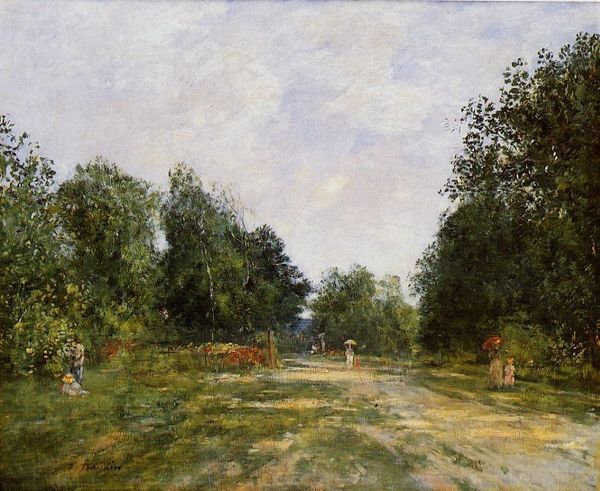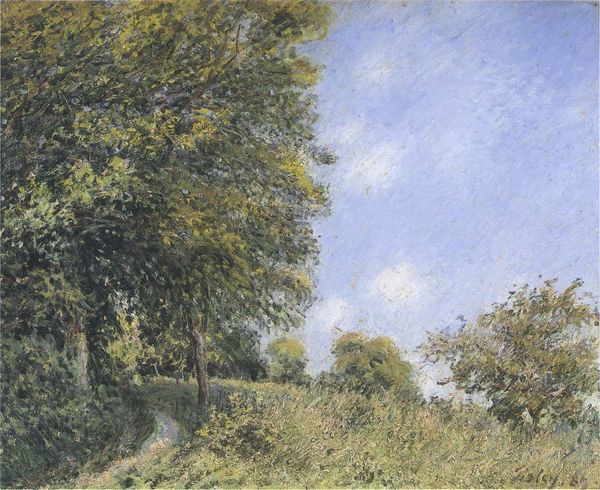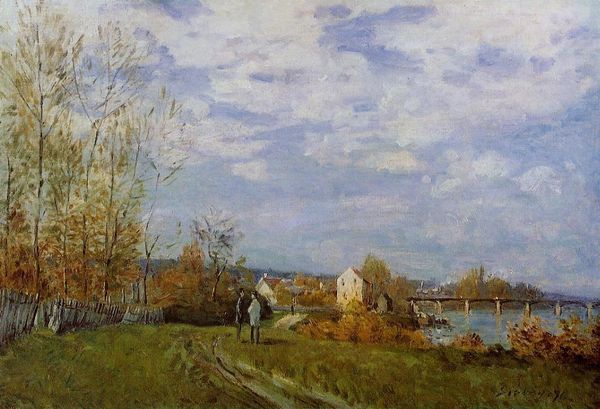
Copyright: Public domain
Curator: The painting before us, rendered in oil on canvas, is Alfred Sisley's "Near Louveciennes," painted in 1874. It's such a captivating slice of the French countryside. What strikes you first? Editor: Immediately, it’s the interplay of light and shadow. That dappled ground is irresistible, and the hazy distance lends this work a dreamlike quality, doesn't it? Though what are we to make of that tiny figure there, obscured amidst nature’s glory? Curator: The ambiguity intrigues me, too. The figures, almost swallowed by the verdant landscape, hint at a broader social context, but Sisley chooses instead to spotlight nature itself. The setting here reflects the rise of the bourgeoisie, vacationing and looking for picturesque countryside scenes like these that can mirror social standing through natural possession. What’s fascinating is the way Sisley embraces and departs from Realism to create a sense of temporal instability. Editor: Interesting. This also appears like a fleeting, impressionistic moment and the painting has very specific conditions under which it presents itself that allow us to reflect about landscape, art, and memory altogether. How much is a picture determined to a time or how much a time is fixed by the pictures. Curator: Precisely! I also want to add it reminds us of how fleeting existence is and the important necessity of enjoying what's at hand, for which some believe art is an extension. It suggests that what lasts aren't the grand movements but the accumulation of little slices of heaven. Editor: Speaking of duration, perhaps we are not simply spectators but witnesses caught between one of so many moments in the historical continuum to have crossed paths. To realize that our experience today somehow resonates with an instant lived nearly a century and a half is, maybe, its own form of revolution? Curator: Absolutely. I also think it's amazing that we can stand here, nearly a century and a half later, and engage in a dialogue across time. Thank you. Editor: A revolution indeed, thank you for guiding us.
Comments
No comments
Be the first to comment and join the conversation on the ultimate creative platform.
